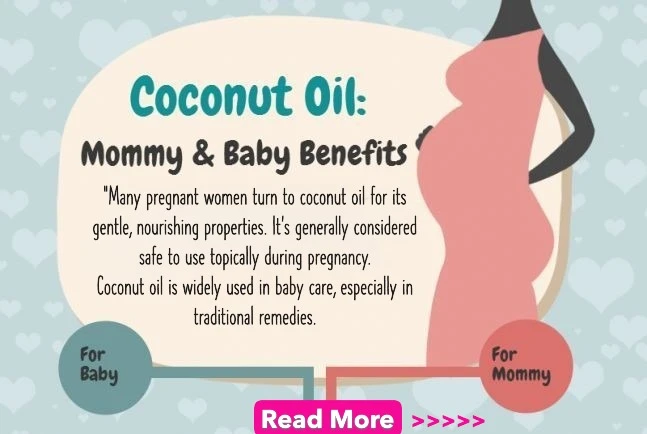Is Coconut Oil Safe to Use on Babies or During Pregnancy? Exploring Its Benefits and Precautions
Is Coconut Oil Safe to Use on Babies or During Pregnancy? Exploring Its Benefits and Precautions
Coconut oil has earned a strong reputation as a natural, multi-purpose product with benefits for skin, hair, and overall health. For expecting mothers and parents of infants, the appeal of natural skincare products is especially strong due to concerns about chemical exposure. But is coconut oil safe to use on babies or during pregnancy? Here’s what you need to know.
Coconut Oil During Pregnancy: Safe and Beneficial
Many pregnant women turn to coconut oil for its gentle, nourishing properties. It’s generally considered safe to use topically during pregnancy, and it offers a range of benefits:
-
Moisturizing Dry, Itchy Skin:
Hormonal changes during pregnancy often lead to dry or sensitive skin. Coconut oil helps by deeply hydrating and calming the skin without harsh chemicals. -
Reducing Stretch Marks (to Some Extent):
While no oil can guarantee the prevention of stretch marks, coconut oil may improve skin elasticity and keep it supple, reducing the severity of stretch marks over time. -
Soothing Irritations:
It can help soothe rashes or irritated areas caused by friction or hormonal sensitivity. -
Natural Belly Balm:
Many mothers use coconut oil as a belly butter to massage the abdomen and soothe tight, stretching skin.
While topical use is generally safe, ingesting large amounts of coconut oil during pregnancy is not recommended without consulting a healthcare provider. Though some believe that consuming virgin coconut oil boosts immunity and supports digestion, it’s best used in moderation due to its high saturated fat content.
Coconut Oil for Babies: Gentle and Safe (with Caution)
Coconut oil is widely used in baby care, especially in traditional remedies. However, as with any new product, it’s important to introduce it cautiously:
-
Natural Moisturizer for Baby Skin:
Coconut oil can help treat dry patches, flakiness, and mild eczema by locking in moisture and soothing inflammation. -
Cradle Cap Treatment:
Applying a small amount to the baby’s scalp can help loosen the flakes of cradle cap and make them easier to remove. -
Diaper Rash Relief:
Thanks to its antifungal and antibacterial properties, coconut oil may help prevent or calm mild diaper rashes. However, for severe or persistent rashes, medical treatment is necessary. -
Baby Massage Oil:
In many cultures, coconut oil is a traditional massage oil for infants. It helps nourish the skin and can be gently massaged into muscles to promote bonding and relaxation.
Precautions to Keep in Mind
-
Patch Test First: Always test a small amount on the baby’s skin or your own before widespread use, especially if there’s a family history of allergies.
-
Choose Virgin, Cold-Pressed Coconut Oil: This form is the least processed and most suitable for delicate skin.
-
Avoid Contact with Eyes or Broken Skin: It may cause discomfort or irritation if it enters sensitive areas.
Final Thoughts
Coconut oil is generally safe and beneficial for both babies and pregnant women when used properly. It offers natural hydration, soothing effects, and mild antimicrobial protection. However, it's important to use high-quality, unrefined oil and consult a healthcare provider if there are any concerns—especially if your baby has sensitive skin, eczema, or allergies.

Related Blog
What Causes Oily Skin and Can It Be Managed Naturally? Exploring Root Causes and Gentle Solutions
Aug 2, 2025 by Admin
General
What Are the Signs That You Have Sensitive Skin? Key Symptoms to Help You Identify This Delicate Skin Type
Aug 1, 2025 by Admin
General